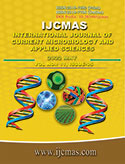


 National Academy of Agricultural Sciences (NAAS)
National Academy of Agricultural Sciences (NAAS)

|
PRINT ISSN : 2319-7692
Online ISSN : 2319-7706 Issues : 12 per year Publisher : Excellent Publishers Email : editorijcmas@gmail.com / submit@ijcmas.com Editor-in-chief: Dr.M.Prakash Index Copernicus ICV 2018: 95.39 NAAS RATING 2020: 5.38 |
Increasing global energy demand and environmental concerns associated with petroleum have raised interest in biofuels to reduce dependency on crude oil and promote carbon-neutral energy generation. The information available suggests that biomass can become a sustainable and significant contributor to current energy demands if research and development in the field of thermochemical transformation for various biomass types are encouraged. The primary products of biofuel may be in a gas, liquid, or solid form. These products can be further converted by biochemical, physical, and thermochemical methods. The first generation of biofuels is ethanol derived from food crops rich in starch or biodiesel made from waste animal fats such as cooking grease. The second generation is bioethanol derived from non-food cellulosic biomass and biodiesel taken from oil-rich plant seeds, such as soybeans or jatropha. The third generation of biofuels is made from cyanobacteria, microalgae, and other microbes, and it is the most promising approach to meeting the world's energy demands. The era of biofuel production desires the ability to conclude formal incorporation of functional genomics metabolomics with transcriptomics will undoubtedly support the discovery. This review focuses on the production of biofuel through molecular marker technology, next-generation technology, and biochemical process.
 |
 |
 |
 |
 |